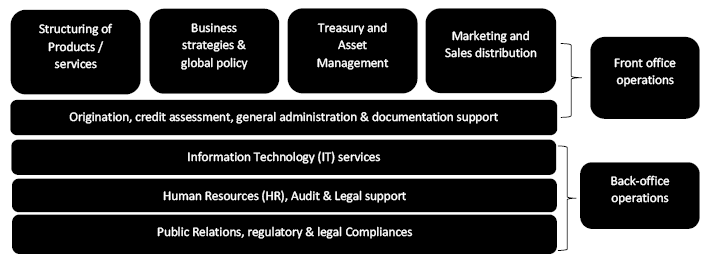[Opinion] Transfer Pricing Nuances of Intra Group Services in the Financial Services Industry
- Blog|News|Transfer Pricing|
- 2 Min Read
- By Taxmann
- |
- Last Updated on 11 December, 2024

Shefali Shah & Darshak Pandya – [2024] 169 taxmann.com 199 (Article)
1. Global value chains and Intra-group Services (IGS)
In the recent competitive environment, Multinational Enterprises (MNEs) in the financial services industry (FSI) have been striving to attain several business objectives, amid volatile macro-economic conditions. Globalization has led to the formation of global value chains where services and functions are often centralised or shared among different entities within MNE groups. Services provided by one or more members of the MNE group, for the benefit of other members, are commonly referred to as Intra-Group Services (‘IGS’) in a Transfer Pricing (‘TP’) context.
The FSI sector is highly regulated across the globe. The components of the value chain in the FSI sector, as depicted below, are inextricably linked. Arguably more so in the FSI sector compared to other industries and sectors, IGS are integral to FSI MNEs’ ability to operate, compete, survive, and grow. Globally, IGS is one of the most contentious and commonly litigated topics in the TP arena. This article focuses on TP considerations for centralised shared services in the FSI.
Diagrammatic representation of typical global value chain in the FSI sectors:

2. Nature of Shared services in the FSI
IGS in the FSI sector can be either core, value-adding services or non-core, low-value-adding support services. To ensure regulatory compliance and uniform functioning, MNEs develop in-house expertise on various core functions such as treasury, cash pooling, centralised financing, software products/algorithms, regional research, fund accounting, captive insurance etc. These specialised core technical functions are provided by regional/group headquarters to group entities, to ensure consistent quality service to all group entities when required. Often, the provision of such services may involve utilising or creating intangibles, and the service provider may bear significant risks attached to those functions and activities.
Non-core, low value adding services on the other hand, are services which are supportive in nature, are not integral to the core business of the group, do not involve intangibles and do not give rise to significant risks. Examples of such services include HR, legal, Information Technology (IT), and general administrative assistance.
Click Here To Read The Full Article
Disclaimer: The content/information published on the website is only for general information of the user and shall not be construed as legal advice. While the Taxmann has exercised reasonable efforts to ensure the veracity of information/content published, Taxmann shall be under no liability in any manner whatsoever for incorrect information, if any.

Taxmann Publications has a dedicated in-house Research & Editorial Team. This team consists of a team of Chartered Accountants, Company Secretaries, and Lawyers. This team works under the guidance and supervision of editor-in-chief Mr Rakesh Bhargava.
The Research and Editorial Team is responsible for developing reliable and accurate content for the readers. The team follows the six-sigma approach to achieve the benchmark of zero error in its publications and research platforms. The team ensures that the following publication guidelines are thoroughly followed while developing the content:
- The statutory material is obtained only from the authorized and reliable sources
- All the latest developments in the judicial and legislative fields are covered
- Prepare the analytical write-ups on current, controversial, and important issues to help the readers to understand the concept and its implications
- Every content published by Taxmann is complete, accurate and lucid
- All evidence-based statements are supported with proper reference to Section, Circular No., Notification No. or citations
- The golden rules of grammar, style and consistency are thoroughly followed
- Font and size that’s easy to read and remain consistent across all imprint and digital publications are applied



 CA | CS | CMA
CA | CS | CMA
